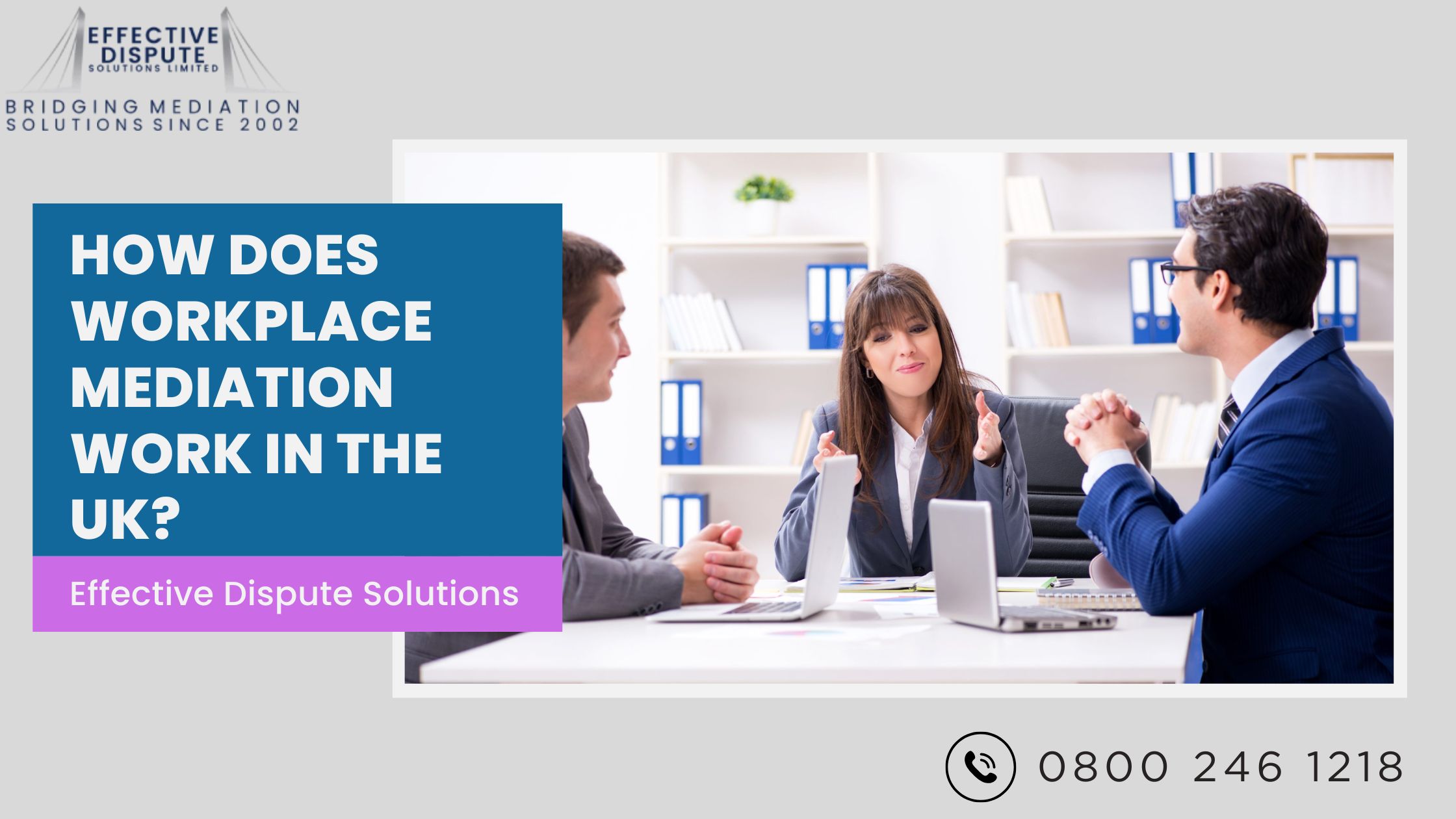Workplaces aren’t just about tasks, emails, and deadlines. They’re made up of people, and people sometimes clash. Whether it’s a disagreement between colleagues or tension between a manager and an employee, things can get uncomfortable fast. So, how do you deal with conflict in the workplace before it turns toxic or leads to someone quitting?
That’s where workplace mediation comes in.
It’s a simple, structured way to resolve issues at work, without making things worse. Whether you’re a business owner, HR manager, or team leader, understanding what is workplace mediation can help you fix problems early, fairly, and with less stress.
Let’s break down how it works.
What Exactly Is Workplace Mediation?
Think of workplace mediation uk as guided problem-solving. It’s a confidential, voluntary conversation between two (or more) people who aren’t seeing eye to eye which is led by a neutral third person called the mediator.
This isn’t about pointing fingers or deciding who’s “right.” It’s about helping people actually talk and listen to each other, figure out where things went off track, and agree on how to move forward.
In short, it’s a way to untangle misunderstandings without dragging everyone into a formal HR process.
Why It Works?
Not everyone’s great at dealing with conflict, and it is more common than anyone can imagine. Some avoid it, others bottle things up, and a few go straight to war mode. That’s why mediation between employees works so well, it gives people a safe space to say what’s bothering them, without it turning into a blame game.
Also, compared to formal complaints or HR investigations, mediation is:
- Quicker
- Less stressful
- Private
- Less likely to make things worse
- And way more personal
Plenty of businesses across the UK are using it not just to solve problems, but to stop them becoming problems in the first place.
Who’s Mediation For?
If you’re wondering whether mediation in workplace settings applies to your team, here’s a quick test:
- Is there tension or awkwardness between people who have to work together?
- Is communication breaking down?
- Are there repeated misunderstandings or complaints?
If you said “yes” to any of those, mediation could help. It’s not just for junior staff either. Team leads, senior managers, and even entire departments can benefit when relationships need mending.
Step-by-Step Process of The Workplace Mediation
Let’s walk through the usual workplace mediation process so you know exactly what’s involved. It’s simpler than most people think.
1. Getting Everyone On Board
Mediation only works if everyone agrees to it. No one gets forced into it. A mediator checks that both sides are willing to have a conversation and explains what they can expect.
2. Private One-to-One Chats
Before sitting everyone down together, the mediator meets with each person individually. This helps them understand the situation from both sides and gives people a chance to vent in private.
3. The Joint Meeting
This is where the magic happens. The mediator brings everyone together, usually in a quiet, neutral setting, and guides the conversation. The goal here isn’t just to talk, but to actually hear each other out. That part’s important.
The mediator keeps things respectful, helps clarify misunderstandings, and gets both sides to focus on what needs to change moving forward.
4. Agreeing on the Way Forward
If things go well (and most times, they do), both sides agree on practical steps to move forward. That might be something simple like changing how they communicate, or it could be more structured, like weekly check-ins.
The mediator might write up a summary of what was agreed, but it’s not a legal document. It’s based on trust.
How Long Does It All Take?
This depends on the situation, but most workplace mediation can be wrapped up in a day. Compare that to formal grievances or legal disputes that can drag on for weeks or months.
That’s why HR professionals and business owners love it, it saves time, money, and a lot of unnecessary drama.
When Mediation Is Not the Right Fit?
While mediation is helpful in loads of cases, it’s not for everything. If someone’s facing serious misconduct, that’s a legal issue and should be handled formally.
But in the majority of everyday conflicts such as clashing personalities, communication breakdowns, tension between teams, mediation workplace dispute resolution is often the smarter first step.
Real Benefits You Can’t Ignore
Here’s what we’ve heard from teams who’ve tried it:
- “It helped clear the air.”
- “We finally talked without shouting.”
- “Now we actually understand where the other person was coming from.”
More than anything, workplace dispute resolution through mediation helps people feel seen and heard. And when that happens, they’re more likely to work better together, not just today, but long term.
Don’t Wait Until It Gets Worse
If you’re in HR, a team lead, or someone who manages people, pay attention to early signs. When people stop talking, look uncomfortable in meetings, or start avoiding certain coworkers, that’s your cue.
Starting the steps in workplace mediation early can stop things from spiralling. Waiting too long only makes things harder to fix.
The best time to act is when things feel “a bit off”, not when they’ve already exploded.
How Do You Get Started?
You don’t need to figure it all out yourself. Working with an experienced mediator makes all the difference. They’re trained to handle tricky conversations, keep things calm, and create a path forward everyone can stick to.
At Effective Dispute Solutions, we’ve helped countless teams across the UK do exactly that. Whether it’s two colleagues in conflict or wider team dynamics at play, we’re here to make it easier.
Conclusion
Workplace conflict is normal. Ignoring it? That’s risky. The good news is, with the right approach and the right mediator, it doesn’t have to derail your team.
Workplace mediation brings clarity, understanding, and often, a surprising sense of relief. It’s not about winning an argument. It’s about rebuilding trust and getting everyone back to doing what they do best.
If you think someone on your team could benefit from mediation, now’s the time. Visit Effective Dispute Solutions to explore how we can support your team in creating a calmer, more connected workplace.


